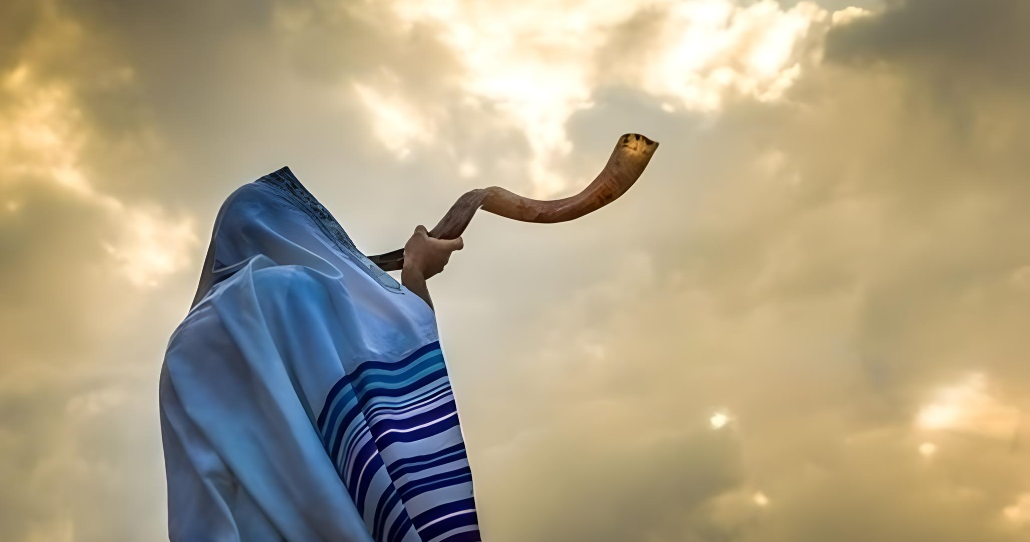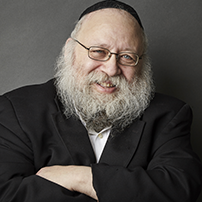
The Meaning of the Word Shofar
The central Mitzvah of Rosh Hashanah is to hear the sounding of the Shofar; a commandment mandated by the Torah. Although it is observed primarily because it is a Mitzvah, many reasons have been advanced for its observance. Indeed, the great Jewish scholar and leader, R. Sa’adia Gaon (882-945), gave no fewer than 10 reasons for the sounding of the Shofar.
The word shofar is etymologically related to the word shapir which means good, fine, beautiful, and pure.
Thus, the purpose of the sounding of the Shofar is to make ourselves beautiful and pure. Perhaps, it is also related to the English word “shape” as the sound of the Shofar shapes and molds our character.
Shofar is also said to be a composite of the two words: Shor-par – ox and bullock. The job of the Shofar is to tame our animal soul; transforming it from a wild animal into a refined and beautiful force.
Coronation
Rabbi Sa’adia’s first reason for hearing the Shofar is that it represents the coronation of G-d as our King.
As every year comes to an end and when it does, G-d withdraws His pleasure and delight with being the Sovereign of His creation. G-d does not want to be a dictator and impose His sovereignty over us, but rather wants us to accept Him as our King, of our own volition. G-d wants us to invite Him into our lives by coronating Him as our King anew each Rosh Hashanah. This coronation ritual begins when we sound the Shofar. With each Shofar blast we proclaim our desire for G-d to be the One to direct our lives. And when G-d sees our heartfelt desire for Him to be our King, He reciprocates with satisfaction and delight over being our King.
It may be suggested that the “coronation” ceremony, commenced with the sounding of the Shofar, can also be directed inwards. The Shofar awakens the power of royalty in our own lives. A monarch is one who is in total control of his world. Deep down, we all possess a royal power that enables us to exercise control over all our faculties.
The Talmud has an expression regarding kings: “amar malka akar tura – a king declares and a mountain is uprooted.” The yetzer hara – evil inclination – is referred to as an obstructive mountain and the power of royalty we possess can uproot it.
Another Talmudic expression concerning a king echoes this idea: “Melech poreits geder – a king has the license to break through barriers.” The barriers that society and we ourselves erect which prevent us from fulfilling our G-d given mission can be breached with the power of royalty awakened by the sounding of the shofar.
Within the human anatomy, the head is our king. Indeed, the word melech is an acronym for mo’ach – brain lev – heart kaved – liver, when it is spelled in that order. This is in recognition that the mind controls the heart and other vital bodily functions.
The message of Rosh Hashanah, translated as the “head” of the year, is that we must not only proclaim G-d as our King but also that we should be a head and not a tail. This expression is the reason it is customary to eat the head of a lamb or fish on Rosh Hashanah to reinforce that we should be a head and not a tail.
In addition to the message that we should be heads, it also suggests that we should associate ourselves with and connect to people who are also heads; those whose heads are “screwed” on right.
Another and deeper application of this message is that if we rest on our laurels our lives become tails to the person we were yesterday. To be a head and not a tail implies that every day should be a new day in terms of our achievements and not just a continuation – the tail – of yesterday.
Ushering In a Period of Teshuvah
Sounding the Shofar on Rosh Hashanah, according to Rabbi Sa’adia Gaon, heralds the beginning of the period known as Aseres Yemei Teshuvah – the Ten Days of Teshuvah which culminate with Yom Kippur.
Part of the process of G-d joyfully agreeing to be our King involves our efforts at Teshuvah; this is usually translated as “repentance” but, more accurately, as “return.” When we return to our inner holiness, we have the power to “awaken” G-d’s desire to return to us and be our Sovereign.
Because these Ten Days represent G-d’s closeness to us, more than at any other time of the year, it makes the process of change that much more possible and accessible to us.
The Kabbalists teach us that there are 10 faculties of our soul that correspond to G-d’s Ten Attributes. The fact that there are Ten Days of Teshuva points to the fact that Teshuvah must involve all our 10 faculties. The message thus is that we have the power to change all of our faculties.
Reminds Us of Sinai
Rabbi Sa’adia’s third reason for sounding the Shofar involves remembrance of the giving of the Torah at Mount Sinai. That historical event was ushered in by the sound of the Shofar.
Our Shofars today remind us of the romance of our courtship, engagement, and wedding with G-d at Sinai.
As we come before G-d on Rosh Hashanah and beseech Him to become our King, we remind Him and ourselves of the love affair that we experienced at Mount Sinai.
There is a famous parable of R. Levi Yitzchak of Berditchev:
A king was once traveling in the forest and lost his way, until he met a man who recognized that he was the king and escorted his master out of the forest and back to his palace. The king later rewarded him with many presents, and elevated him to a powerful minister’s post.
After a while, however, the man committed an act which was considered rebellious against the king, and he was sentenced to death. Before he was taken out to be executed, the king granted him one last request.
The man said: “I request to wear the clothes I wore when I escorted His Majesty when he was lost in the forest, and that His Majesty should also wear the clothes he wore then.”
The king complied, and when they were both dressed in the garments they wore at the time of their meeting, he said, “By your life, you have saved yourself,” and called off the execution.
The meaning of the parable is that before G‑d gave the Torah to Israel, he offered it first to all the nations of the world. They all refused, except the people of Israel, who willingly accepted the yoke of Heaven and pledge to fulfill the commandments of the Creator.
But now we have transgressed and rebelled, like the man in the parable, and with the imminent arrival of the Day of Judgment we are fearful indeed. So, we blow the Shofar to recall that Shofar which accompanied our original acceptance of the Torah and coronation of G‑d. This merit stands by us, and G‑d forgives all our sins and inscribes us immediately for a year of goodness and life and, most importantly, a year of emption with the coming of Mosiach!


